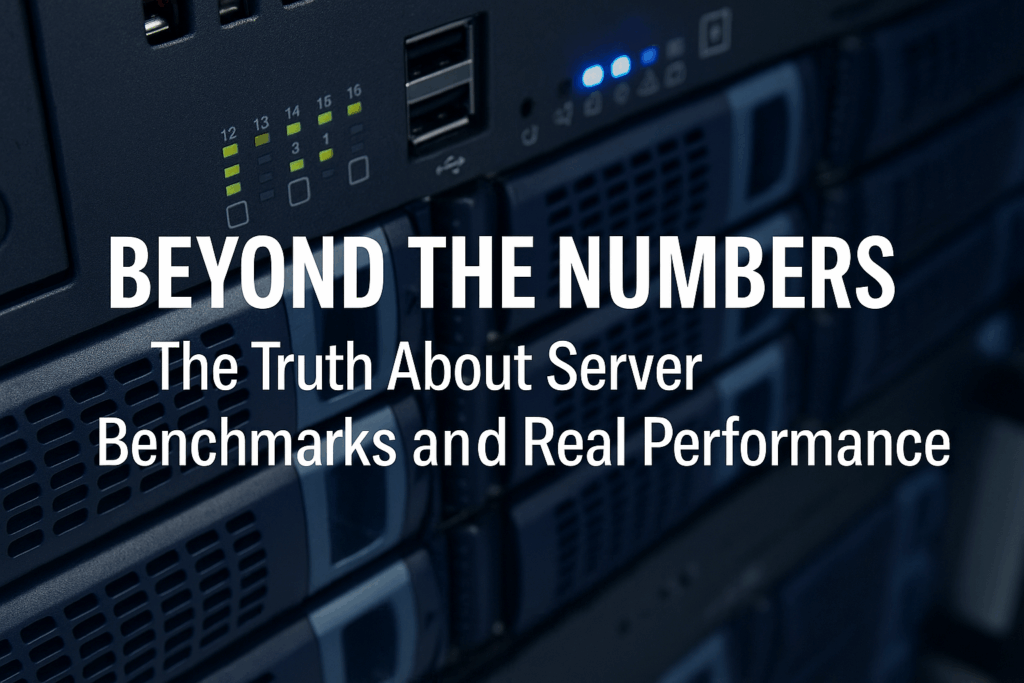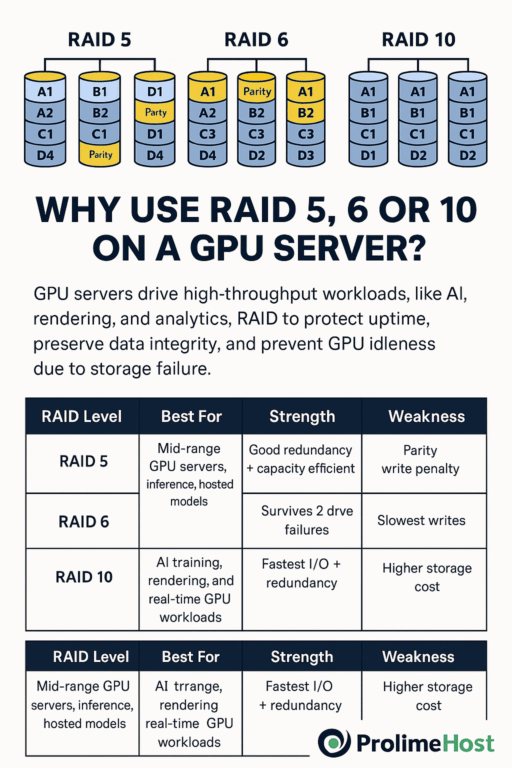
Elastic scores don’t always tell the full story. CPU benchmark tests are great at measuring raw processing power, but when it comes to real-world hosting, AI workloads, and modern compute needs, they only reveal part of the picture.
At ProlimeHost, we’ve spent over 22 years building infrastructure that delivers not just peak numbers, but predictable, ROI-driven performance. Let’s explore what CPU benchmarks really measure, where they fall short, and why GPU servers have become the new benchmark for intelligent workloads.
1. The Strengths of CPU Benchmark Tests
A. Standardized Performance Metrics
CPU benchmarks like Geekbench, Cinebench, and PassMark — provide standardized, reproducible comparisons across processors. They reveal how a CPU performs under synthetic stress, offering a level playing field for evaluating speed and efficiency.
B. Insight Into System Optimization
For server administrators and hosting providers, benchmarks help identify potential bottlenecks in cache performance, memory access, or thread utilization. This data aids in tuning servers for better web performance, database response, and virtualization stability.
C. Predictive for General Hosting Workloads
For applications like cPanel hosting, databases, or web serving, CPU benchmarks still hold practical value. They give a rough estimate of how efficiently a server might handle simultaneous user requests or dynamic web content generation.
2. The Weaknesses of CPU Benchmark Tests
A. Synthetic Doesn’t Equal Real-World
A high CPU score doesn’t necessarily mean faster page loads or smoother AI model performance. Benchmarks are synthetic; they test pure computation, not complex, mixed workloads that involve I/O, caching, and GPU offloading.
B. Linear Testing, Not Parallel Reality
Most CPU benchmarks focus on sequential or lightly-threaded workloads. But in the age of AI and big data, parallel computing reigns supreme. GPU architectures can process thousands of threads simultaneously, something traditional CPUs weren’t built to do.
C. Ignoring the Ecosystem
Hosting and compute performance depend on more than CPU cycles. Storage throughput, RAM bandwidth, PCIe lanes, and especially GPU acceleration all play critical roles. Benchmarks can mislead by ignoring how well the entire system integrates under load.
3. Why GPU Servers Outperform Benchmark Logic
A. Parallel Power for Modern Workloads
ProlimeHost’s GPU servers, equipped with NVIDIA RTX A5000, A6000, and AMD Instinct GPUs, are designed for tasks where CPU benchmarks flatline. AI training, deep learning, image recognition, video rendering, and simulation workloads thrive on GPU parallelism.
A single RTX A6000, for example, can deliver tens of thousands of CUDA cores translating to unmatched performance for multi-threaded, vectorized workloads.
B. Real-World Performance Over Synthetic Scores
In production environments, time is money. While a CPU benchmark might show marginal gains, a GPU server can cut rendering time from hours to minutes, or reduce AI model training cycles from days to hours. That’s practical performance, not just numerical bragging rights.
C. Predictable, Scalable Performance
Unlike elastic cloud models where compute costs spike unpredictably, ProlimeHost’s GPU servers offer fixed, dedicated performance with no throttling. Businesses know exactly what resources they’re getting, ideal for long-running or intensive workloads that demand stability and cost control.
4. When Benchmarks Meet Business Reality
Benchmark tests can’t measure:
- Network reliability (ProlimeHost’s Cisco-powered backbone ensures 99.99% uptime)
- Thermal stability and hardware quality (enterprise-grade components only)
- ROI efficiency (predictable performance translates to predictable costs)
These are the areas where ProlimeHost’s infrastructure makes the difference. Our servers aren’t designed just to score high in synthetic tests, they’re engineered for sustained, real-world workloads that businesses depend on.
5. The Hybrid Approach: CPU + GPU at ProlimeHost
Modern infrastructure isn’t about CPU vs. GPU; it’s about CPU + GPU synergy.
ProlimeHost’s architecture allows clients to pair enterprise CPUs like AMD EPYC or Threadripper PRO with dedicated GPU accelerators.
This combination delivers:
- Exceptional multitasking (CPU)
- Massive parallel compute (GPU)
- Predictable uptime (network)
- Measurable ROI (cost efficiency)
Conclusion: Look Beyond the Benchmark
Benchmark tests are useful, but they’re not the full story. In 2025 and beyond, performance is defined not by synthetic numbers, but by how quickly, efficiently, and reliably your infrastructure can deliver results.
At ProlimeHost, our GPU-powered infrastructure offers more than speed; it delivers predictable performance, stability, and true cost efficiency for modern workloads that CPUs alone can’t match.
FAQs
Q: Are CPU benchmarks still useful for hosting decisions?
Yes, they help evaluate basic compute performance. However, they should be complemented with real-world tests that reflect your actual workloads, such as AI training, rendering, or data analytics.
Q: When should I choose a GPU server instead of a CPU-only system?
If your workload involves parallel processing, like AI, ML, 3D modeling, or big data, GPU servers are vastly more efficient. For traditional web hosting or control panels, CPU servers remain optimal.
Q: Do ProlimeHost GPU servers support hybrid CPU-GPU workloads?
Absolutely. Our systems are built for hybrid performance, with enterprise CPUs handling orchestration and GPUs accelerating heavy computation.
Q: How does ProlimeHost ensure predictable performance?
By using dedicated hardware, not virtualized, elastic resources, with enterprise-grade networking and cooling. No throttling, no noisy neighbors, no billing surprises.
Ready to Benchmark Real-World ROI?
Synthetic tests end where true performance begins.
Experience ProlimeHost’s enterprise-grade GPU servers; optimized for AI, rendering, and high-performance workloads that demand consistency, scalability, and value.
👉 Learn more or build your custom GPU configuration today:
📞 Call: +1 (877) 477-9454
📧 Email: sales@prolimehost.com
🌐 Visit: https://www.prolimehost.com/gpu-dedicated-servers/




